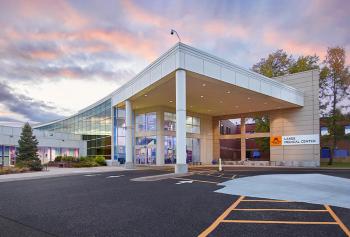
Tropical Storm Debby, cyberattack worsen blood shortage, hampering hospitals
A ransomware attack disrupted systems at a blood center serving the southeast. The weather impacts have compounded problems.
Hospitals and health systems throughout the southeast are dealing with a blood shortage, which has been exacerbated by a malicious cyberattack and a major weather event.
Hospitals in the southern states have also postponed elective surgeries and some appointments due to the severe weather from Tropical Storm Debby. The severe weather has also scuttled some blood drives, the Red Cross says.
Some of the disruptions began before Debby landed on the Florida coast Monday.
OneBlood, a nonprofit blood center serving much of the southeastern United States, said last week that it suffered a ransomware attack. For days, OneBlood said it continued to collect blood but the attack disrupted its systems and the organization was operating at reduced capacity. OneBlood supplies blood to more than 350 hospitals in the southeast.
Hospitals reported that the OneBlood ransomware attack did have an impact on patient care, including the need to postpone some elective surgeries, according to the
“Manual processes take longer to perform. We felt the impact of this the most when it came to labeling blood for release to hospitals. Despite the challenges, we have remained operational throughout the ransomware event,” Forbes said in a statement.
The Florida Hospital Association cited an “urgent need for blood donations” this week following the OneBlood cyberattack. Aiming to draw attention to the situation, Mary Mayhew, president and CEO of the Florida Hospital Association,
John Riggi, the national advisor for cybersecurity and risk at the American Hospital Association, noted that ransomware groups have targeted blood suppliers previously.
"This incident once again reminds us that any cyberattack against any entity that results in the delay and disruption to life-sustaining care is a threat to life crime. It also reminds us that our cyber adversaries are increasingly and intentionally targeting health care mission-critical and life-critical third-party service providers and supply chain to cause maximum disruption on a regional and field-wide basis," Riggi said in a statement.
Still, even as OneBlood has worked to restore systems and ramp up capacity, Tropical Storm Debby is exacerbating blood shortages, the Red Cross says.
“The storm’s devastating flooding, power outages and travel hazards have forced the cancellation of blood drives in the Southeast, causing hundreds of lifesaving blood products to go uncollected when more donations are so desperately needed,” the Red Cross says.
Ahead of Debby’s arrival, the Association for the Advancement of Blood & Biotherapies (AABB) said there was an “urgent need for group O blood products and platelets.”
Hospitals and health systems across the southeastern coast adjusted operations to deal with the storm.
Tallahassee Memorial postponed elective procedures Monday, but returned to normal operations Tuesday.
Doctors’ Memorial Hospital in Perry, Florida suffered a lot of leakage due to heavy rainfall, Lauren Faison-Clark, the hospital’s CEO,
Hospitals across South Carolina’s Lowcountry postponed appointments and shut down clinics,
The National Weather Service projected heavy rains in North Carolina and South Carolina Thursday, with the potential for significant flooding. The remnants of Debby are expected to move up the coast, bringing heavy rain through the Mid-Atlantic and Northeast through Saturday.



































